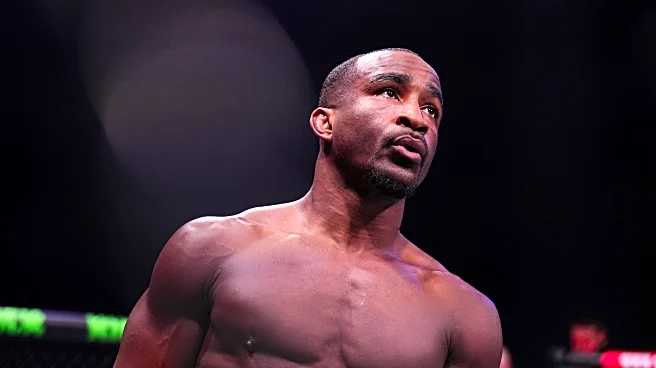What's Happening?
On a recent episode of 'The Daily Show,' host Josh Johnson addressed comments made by Megyn Kelly regarding Jeffrey Epstein's criminal activities. Kelly, during her podcast, argued that Epstein was 'not
a pedophile' because he was interested in 'very young teen types' rather than younger children. Johnson criticized Kelly's attempt to downplay the severity of Epstein's actions, highlighting clips where Kelly differentiated between the ages of victims, suggesting a distinction between crimes against teenagers and younger children. The audience reacted negatively to Kelly's comments, prompting Johnson to question her past career as an attorney. Despite Kelly's assertion that Epstein's actions were 'disgusting,' her comments sparked controversy and criticism for seemingly minimizing the gravity of the offenses.
Why It's Important?
The discussion surrounding Megyn Kelly's comments on Epstein's crimes is significant as it touches on broader societal issues of how sexual offenses are perceived and discussed in media. Kelly's remarks have drawn attention to the language used when addressing crimes of this nature, potentially influencing public perception and legal discourse. The backlash highlights the importance of responsible media commentary, especially when dealing with sensitive topics like sexual abuse. This incident underscores the ongoing debate about accountability in media and the role of public figures in shaping narratives around criminal behavior. It also reflects the challenges in addressing complex legal and ethical issues in a way that is both accurate and sensitive to victims.
What's Next?
The controversy surrounding Kelly's comments may lead to further discussions on media responsibility and the portrayal of sexual crimes. Public figures and media outlets might face increased scrutiny regarding how they discuss such topics, potentially prompting changes in how these issues are covered. There could be calls for Kelly to clarify or retract her statements, and this incident might influence future media guidelines on discussing sensitive legal matters. Additionally, advocacy groups and legal experts may weigh in, offering perspectives on the implications of minimizing the severity of sexual offenses, which could lead to broader societal conversations about victim advocacy and legal definitions.
Beyond the Headlines
This incident raises deeper questions about the ethical responsibilities of media personalities and the impact of their words on public understanding of legal issues. It highlights the potential consequences of trivializing serious crimes and the importance of maintaining sensitivity towards victims. The discussion also touches on the cultural dimensions of how society views age and consent, potentially influencing legal interpretations and public policy. Long-term, this could affect how media educates the public on legal definitions and the importance of accurate representation of criminal activities.











